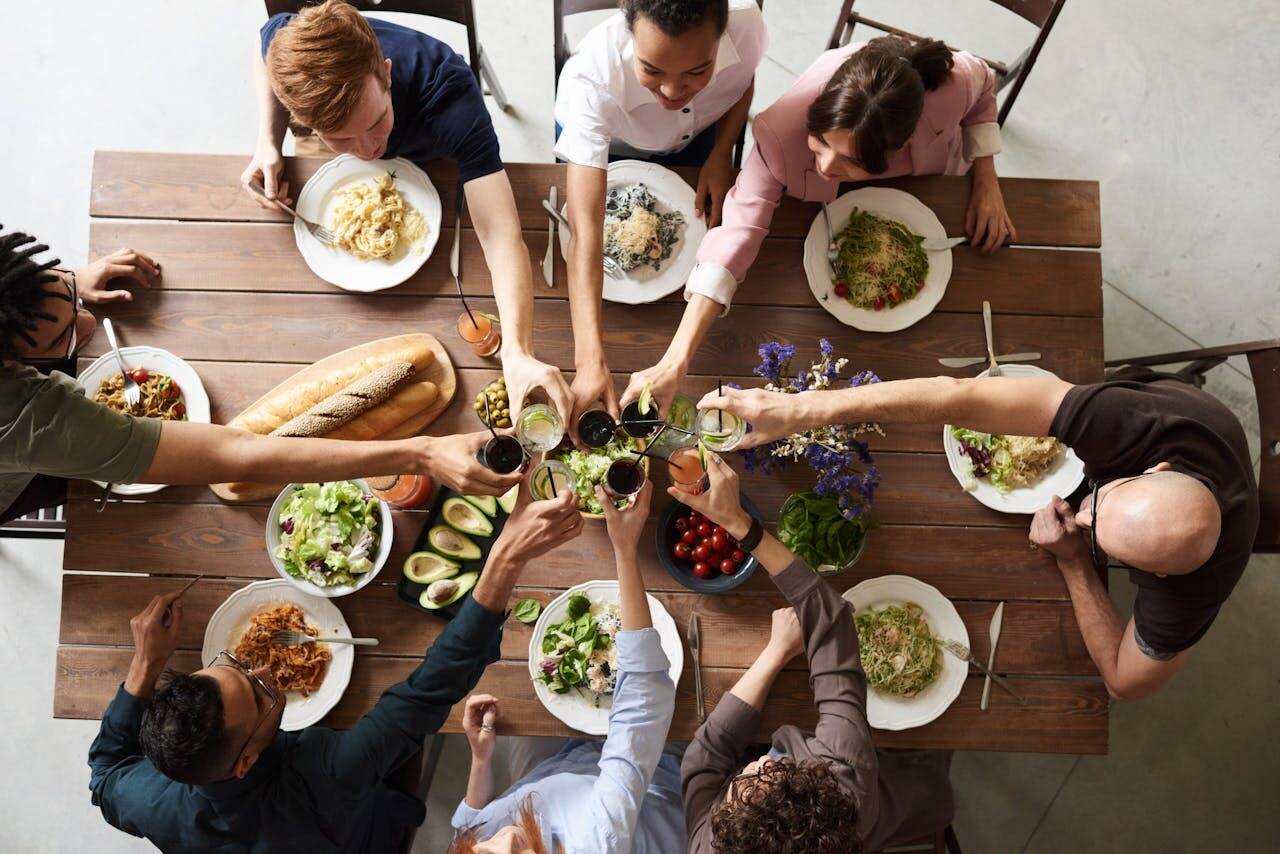
How Charleston’s Culinary Scene Shapes Daily Life for Newcomers
Moving to Charleston means adjusting to much more than a new address—it means adjusting to a lifestyle deeply rooted in food. From early morning biscuit runs to late-night oyster roasts, meals are at the center of how locals connect. Charleston’s culinary scene shapes daily life through shared traditions, community gatherings, and an ongoing passion for flavor. For newcomers, understanding this connection makes settling in easier and far more enjoyable.
A Warm Welcome Through Food
Few cities welcome newcomers the way Charleston does—with open tables and home-style dishes. Southern hospitality here is genuine, and food often becomes the first introduction to local life. A simple meal of shrimp and grits can feel like an invitation to belong.
Local eateries emphasize comfort. Whether you stop for she-crab soup or attend a backyard Lowcountry boil, you’ll notice how food draws people together. These moments go beyond eating; they create conversation and connection.
For those relocating, sharing a meal can ease the pressure of adapting to a new city. Planning ahead with a trusted mover can also make the process less stressful, especially during long relocations. Exploring moving day tips every first-time mover should know from professional moving companies helps you organize your move efficiently. That way, once you arrive, you can focus on settling in—and maybe enjoying your first Charleston meal without worry.
From Farmers’ Markets to the Table: Local Ingredients Everywhere
Fresh, local produce shapes how residents cook and shop. Farmers’ markets across the city fill weekends with color and conversation. The Charleston Farmers Market at Marion Square is a must for anyone who loves discovering what’s in season.
The region’s climate allows long growing periods, so local fruits, vegetables, and herbs stay available year-round. Fresh seafood arrives daily from nearby docks, inspiring both home cooks and chefs. For someone new to the area, these fresh ingredients change eating habits fast. You start cooking differently—lighter, fresher, and more seasonally.
Farm-to-table dining isn’t a trend here—it’s a lifestyle. Restaurants proudly source ingredients from nearby farms. Even bakeries and coffee shops use local suppliers. This approach keeps the economy strong and meals flavorful, while giving newcomers a chance to taste Charleston’s roots one dish at a time.
Neighborhood Cafes as Social Anchors
Adjusting to a new city can feel isolating, but local cafes quickly change that. Coffee shops in Charleston aren’t just places to grab a drink; they’re where friendships start.
In areas such as Mount Pleasant or the French Quarter, small cafes act as community hubs. You’ll find people chatting about neighborhood events or collaborating on projects at shared tables. For many new residents, these spaces become informal offices or study spots.
Cafes also give you a real sense of local rhythm. The morning rush, the afternoon lull, the weekend crowds—all mirror Charleston’s relaxed pace. Spending time there helps you learn more about the culture than any brochure could.
For those working remotely, coffee shops offer familiarity in a new environment. It’s easy to start conversations and form friendships, especially in a city that values hospitality so deeply.
Festivals and Community Tables: Where Charleston’s culinary scene shapes daily life
Charleston loves to celebrate food, and it shows. The annual Charleston Wine + Food Festival brings chefs, locals, and newcomers together. It’s not just a tasting event—it’s an introduction to the city’s collective spirit.
Oyster roasts, seafood cookouts, and neighborhood potlucks happen throughout the year. These gatherings offer an easy way to meet people and experience the area’s traditions firsthand. If you’ve just moved, attending one of these events helps you feel involved right away.
The culture of sharing food creates comfort. Even as a newcomer, you’re welcomed to participate. You learn by tasting, listening, and talking to locals who’ve grown up here. It’s a fast track to feeling at home and understanding what makes Charleston special.
Home Cooking and Learning Local Traditions
Living in Charleston often inspires people to start cooking at home. You might find yourself recreating a dish you tried downtown or experimenting with ingredients from a weekend market. Local shops sell grits, rice, and spices that are staples of Lowcountry cooking.
Cooking classes are popular among newcomers. They offer hands-on lessons on regional dishes such as shrimp étouffée or fried green tomatoes. These experiences make food part of your learning process while deepening your appreciation for the culture.
Newcomers often discover that Charleston’s culinary scene shapes daily life in quiet, personal ways. Preparing dinner at home becomes a reflection of the city’s spirit—simple, social, and full of flavor. Even weeknight meals feel special when you use ingredients sourced nearby.
Learning to cook local dishes helps you connect with your surroundings. It transforms your kitchen into a continuation of the city’s traditions, where every recipe holds a story worth sharing.
Balancing Old Habits with New Flavors
Moving doesn’t mean giving up your old food preferences. It means expanding them. Charleston offers everything from comfort food to vegan cuisine, letting you adapt easily without losing your routines.
Many new residents start by mixing their favorite recipes with local ingredients. A classic stew might include Carolina Gold rice instead of potatoes, or you might trade your usual bread for a biscuit. These subtle adjustments keep familiar flavors alive while helping you embrace your new environment.
If you follow specific dietary needs, Charleston has you covered. Health-focused restaurants and organic markets serve gluten-free, vegetarian, and plant-based options. Locals appreciate balance—enjoying indulgent meals on weekends but choosing lighter fare during the week.
Eating here becomes about balance, not restriction. You can enjoy fried chicken one day and fresh-caught fish the next. Over time, these choices shape your habits, showing how living in Charleston naturally changes your relationship with food.
Food as the Heartbeat of Adjustment
Relocating to a new city often requires time to feel settled, but in Charleston, food makes that process faster and more enjoyable. Shared meals, community events, and friendly cafes transform everyday moments into connections. Through every bite, every conversation, and every shared recipe, Charleston’s culinary scene shapes daily life by turning daily routines into shared experiences. For anyone arriving fresh, food isn’t just a necessity—it’s the doorway into belonging.
Photo used: https://www.pexels.com/photo/group-of-people-making-toast-3184183/



